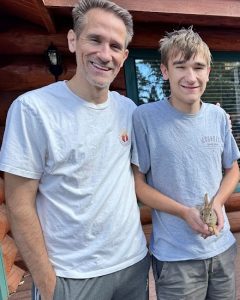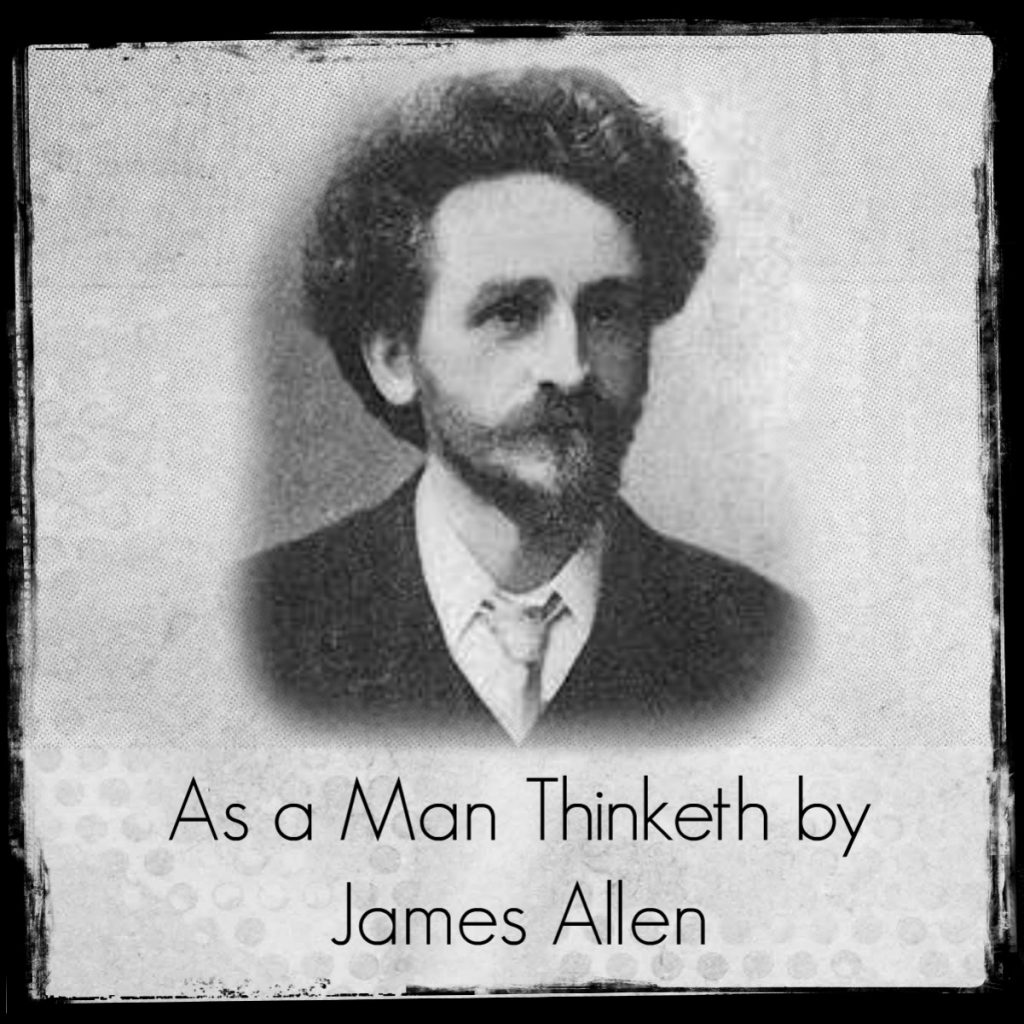What Seems Bad is Really Good
Everyone is human – including the mentors you have looked to and listened to for advice and guidance. Listen to this powerful exploration of what it can mean to you when this happens, and what good can be gleaned from such a disappointing experience.
TRANSCRIPT:
ANNOUNCER: Welcome to the Rare Faith podcast where the solution to every problem is only an idea away and where the same activity with just a little more awareness always yield better results. Award-winning best-selling author Leslie Householder bring some of her best information to this inspiring series of life-changing episodes that you won’t want to miss. Show notes for this episode can be found at ararekindoffaith.com.
LESLIE: I’m kind of excited about this question: What if a mentor fails you? The reason you’ll never hear some of these questions addressed anywhere else is because when you start applying the principles of success, your life moves into a whole different realm. You begin to wonder things that most people will never wonder.
LESLIE: Today’s topic is “What to do when a mentor fails you”. Again you probably won’t hear this question come up at a company water station or as chitchat at ladies night out but it does come up for those who have discovered the benefits of finding and learning from a mentor. Someone who has walked the path you on a walker who has the life you hope to live. I started actively looking to mentors about 20 years ago.
LESLIE: At the time I was newly married and expecting my first baby. We wanted desperately to be able to allow me to stay home with the baby when he was born and we were on the hunt to find the way before he arrived. Mentors show up when you are laser focused on an objective and as you’ve heard it said when the student is ready the teacher will appear.
LESLIE: I know that to be an absolute truth from personal experience and I’ve had it happen in my life at least six times for significant long-lasting mentoring relationships and many more times I’m sure. For those more subtle short-term mentoring relationships, a mentoring relationship can last as short as a comment or as a plane ride. You know how long it takes to sit on a plane with someone or it can last for many many years.
LESLIE: But there comes a point in every mentoring relationship where the purpose of the relationship is fulfilled. Either your objective has changed and you no longer need the mentor’s guidance, or you have successfully learned everything they can teach you. Most of the time the purpose is fulfilled in the moving on process is gradual painless and natural. But once in a while the process is everything but that. It can be confusing. It can be heart wrenching, full of bitterness. It can leave you with a glimpse of gratitude for the time you work together but mostly leaving you feeling hatred for how it went down.
LESLIE: Now I’ve experienced this myself and will share some of the details so you can best understand the conclusions that I drew from it. We are all at different levels of awareness and understanding of the principles that govern everything. So when you can internalize and are living by the same principles as someone else, there’s a natural sense of belonging with that person, or at least you feel comfortable with them. And for several years I followed Bob Proctor’s teachings. I read his book, attended some of his events and, when I was ready, I decided that I wanted him to mentor me.
LESLIE: I had learned all I could from his self-directed programs and I had new questions that weren’t being answered really in those materials that he had produced but I knew he had more answers to share.
LESLIE: So that’s what personal mentoring is for. in fact once in a while I’ll have someone ask for my help without really reading my books or going through my programs and I really recommend that they go as far as they can using the systems I’ve created first, because personal mentoring requires a significant investment. It has to because I or any other mentor, for that matter, only have so many hours in a month to work with. So if they haven’t gone through my regular programs first or at least read some books, they’ll be paying for information that they could easily obtain for the cost of a book or a home study course.
LESLIE: Now I do get it sometimes a person just needs that personal accountability to another human being and for people whose time is just as valuable as mine is, they’re going to be willing to pay for laser focused attention on their issues rather than take the time searching through books or programs that might address other issues that they don’t need the help with. But that’s what I did with Bob we were broke so I got all I could for as little money as possible. And then we used what we learned to increase that income, tripling it in fact, which put us in a position to afford the more advanced training.
LESLIE: I was so amazed at the transformation in my life. so in my eyes, Bob Proctor was bigger than life. I wanted to get to know him personally, pick his brain, learn how he thought. I wanted him to know who I was, and more than that, I wanted him to be impressed by me. I wanted to be a student that he was proud of. So I trained to facilitate his programs. I signed up for that and by doing so I got just a little closer to him. But was still just one of his groupies if you want to call it that. The relationship was professional, cordial but he was still so far up on a pedestal that I really looked forward to the day that he would see me as something closer to an equal.
LESLIE: In my mind I had just as much to offer the world as he did and, in some ways, I thought perhaps even more. You know I’m being honest with you. That was cocky of me. I’m just telling you where my head was at the time. so after trying to follow his instructions for facilitating his programs for some time realizing that he was not going to be sending me leads for his classes but that I was alone responsible for filling my own rooms. I had to begin to improvise but I was a unique individual with a unique slant on the principles I had learned from him and needed to create a following of my own, just to get people to come to my events. That combined with the challenge it was for me to put events on at all while I was raising five young kids, with one on the way while my husband worked a job two and a half hours from home, while we worked to fix and flip the home we were in, which just had two bedrooms and it was a mess. Exposed tack strips everywhere. Even with the little children. All of this combined to bring me to the conclusion that I didn’t have time to do events that I needed, to just write a book and let it be my seminar until we found ourselves in a different season of life.
LESLIE: That’s when and why the Jackrabbit Factor was born. Some of you already know that. But after achieving several other goals using the principles we had learned from Bob, I excitedly sent him an update of all that had happened and thanked him for his work. Because of it we had moved to our dream home. My book had become a best-seller and ultimately my husband was able to walk away from his job to become his own boss.
LESLIE: So, as you can imagine, Bob’s pedestal only grew and grew, got taller and taller with every victory we experienced. But it bothered me that he never really acknowledged me. I never got the satisfaction of hearing that he was proud of me. I guess it was just an insecurity on my part. I was looking for that kind of validation. Surely I was one of his best students ever right? So why couldn’t I penetrate that wall that he had placed around himself. He never replied to any of my messages and when I asked for his endorsement on my book, he did oblige, but I had to craft the proposed endorsement and the request had to go through his people.
LESLIE: I really still longed for a personal relationship of some kind. I wanted to joint venture with him. I wanted to do business together. And I thought the only way it could happen was to become part of his real inner circle. So then he put on an event in Las Vegas which I attended. I wanted to give him a signed copy of my book now that it was finally in print and thank him again for all he had done for us. Now I don’t know if you can imagine this but I was so nervous. I went up to the stand before it began and I waited for an opportunity to talk to him. I was totally shaking in my boots. Yeah. Why? Really, why?
LESLIE: I couldn’t understand it myself. I couldn’t remember anyone ever making me feel this nervous. It was a new experience for me and I didn’t like how it felt, but I didn’t know how to turn it off. So finally his attention turned to me. it was my turn and fumbling for words I knocked over his water. And I didn’t replace it. So instead of cleaning up his water and giving him some more, I awkwardly handed him the book and said, “Just wanted to thank you again. Here’s the book you endorsed in case you didn’t get a chance to read it. You know all the way or whatever”. And he just looked me straight on. Just said, “I read it.” And I said, “oh.”
LESLIE: But you know, kind of waiting for, now what, what do I say next? What’s he gonna say next? I didn’t know. And he just says straight-faced, “it’s a good book”. Just like that and so, after thanking him again, I retreated and then kicked myself for not getting him new water and still wondered how to stop feeling so awkward around him. I expressed my frustration once to a friend of mine who had been on his team for a while.
LESLIE: Specifically, I wanted to know, what do you think he really thought of my book?. You know cuz I’m so insecure and trying to figure it all out. And she said, “Well what did he say?” And I told her, “He said it’s a good book”. She replied, this is what she said, she goes, “Wow! Then that means he thinks it was a really good book because it’s tough to get a compliment out of him.” Now that made me feel a little better but I still wasn’t satisfied. Long story short in the year 2006, my husband and I decided to hire him to mentor us personally for a full year at a ticket price of a hundred thousand dollars. Now we felt like we had hit a ceiling in our progress and believed he had the answers that would help us bust through. It was the year we decided to make a run for the New York Times best seller list on Jack Rabbit Factor and wanted his expertise and his partner who had done just that with her own book.
LESLIE: Well, my husband had quit his job to put his focus with mine on this project and we wanted that personal attention to help us with that very scary transition. So, shortly after signing up to be mentored by him, I held an event that went really well but it left me feeling strange. I couldn’t quite put my finger on why but it left me feeling like I had been hit by a truck. I cried myself to sleep that night wondering what the heck was happening to me. It was the largest event I’d ever put on, nearly 300 people had come to that, and we generated thousands and thousands of dollars from it – the most successful event at that point, in fact.
LESLIE: So why was I feeling that way? I had no idea. So, since I had just paid Bob a hundred thousand dollars to mentor us, and since I thought surely he’d have some insight into this, I sent him a long and emotional email explaining what had happened and asked for his input.
LESLIE: Well he never responded, or so it appeared. I don’t know. Maybe he did and ended up in cyberspace somewhere but I never saw a response. So immediately my triggers went off. Remember we’ve been following him already for more than Oh six years. For more than six years. My triggers went off in the old fears that he would never acknowledge me flared up again. So, still grasping for some perspective, I contacted that friend again who had been part of his team before and she coached me through my emotions. In fact, she became a tremendous support to me through that time and we ended up doing some joint ventures together.
LESLIE: The problem was that she and Bob had parted ways quite a bit earlier and not so much on the greatest of terms. Again here was a mentor-mentee relationship that had filled its purpose and run its course. And I’m gonna talk a little bit later about what’s going on when those parting of ways is not a positive experience at surface level. So when Bob found out that he’d be coaching me on my business and I’m just guessing what was going on on his side of things cuz I didn’t know. But when Bob found out that he’d be coaching me on my business while my business was doing joint ventures with the person he had had to part ways with, I felt more awkward than ever before. I wasn’t trying to get in the middle of anything. It’s just what happened. Because he hadn’t answered my email, that’s where I had turned to. And so, I felt frustrated and angry that, number one, he had never responded to my email, so it seemed, forcing me to look elsewhere for help, only to end up caught in the middle of two people who were helping me but weren’t interested in having anything to do with each other.
LESLIE: It was very awkward. So other situations through the year with him were good and for our growth but added to my anger. I didn’t like the way he treated my husband. It wasn’t bad it was just he’s a tough coach. But I didn’t like how inaccessible he felt to me even after paying all that money and I didn’t want to be angry. I wanted to rise above it and somehow end up as his peer with mutual respect for each other. I saw myself as a bigger person than how I kept showing up to him.
LESLIE: It was shortly after we signed up for that program that I found out it was expecting and when I’m expecting, I am oh a miserable person to be around. Everything looks dark and ugly and depressing to me and it’s just a hormone thing that gets out of whack but this was pretty much his first impression of me as an individual – just this emotional irrational, easily upset person. And so I know I was not being impressive at all but my mom drew her own conclusion. She was convinced that he felt threatened by me and my success.
LESLIE: Well, thanks mom. You know, that’s what moms are for, right. Even though I’m sure that was never the case. Took me a while to see this but I realized I had achieved something if I could actually feel at odds with the Bob Proctor. You know I don’t know if that makes sense to you but prior to this whole experience he could do no wrong. And to see him fall short of my expectations was a blow to me and yet it lended to my maturity.
LESLIE: He had fallen off a pedestal in my eyes but really what was going on is I was growing up. Finally near the end of that year I got the guts to tell him what had been on my mind all that time. I finally got the guts to speak my mind and say what was bugging me and which terrified me. I just agonized over the need to do that and finally did and his response he said very matter-of-factly if you’ve been upset at me all this time without talking to me about it then you deserve to feel bad. Yeah. Touché. You know he was a tough coach. No other coach has ever caused us so much growth. But it’s not because he put his arm around me and said, “Come on. Let’s go and achieve great things”. He was one of those tough coaches that will kick you when you’re down, only because he could see what was inside. And he knew how to bring it out.
LESLIE: At the risk of me hating him, he was willing to take that risk. I want it to be nurtured on her way to success but instead, and he said it this way himself, he’s the one who would kick us off the cliff so we could find out we can fly. And really that’s what happened that year. I didn’t get what I thought I would get out of that program I sort of believed that the investment would somehow get us a high paid advisor. One who would do all the thinking for us, the hard thinking for us. But instead, we’ve never worked so hard to make an investment pay in our life.
LESLIE: But in the end it did. It paid off big-time. Not in the way we expected it would because it required that we take every perceived negative experience and turn it around for our good, including the way this relationship was going with our mentor. I had to take those experiences and consciously turn them for our good. it was a perfect laboratory for applying the very principles he had taught us, leading up to that year of personal mentoring.
LESLIE: Others may have come away from it bitter and disenchanted, but in the long run, I deeply regret that I spent any time at all talking to other people about how Bob had failed me, how he wasn’t what I hoped he would be for me, how painful it was to go through that year of mentoring and how hard it was on our marriage. But I took those experiences and made the most of them and it has paid us back many times over. We turned them for our good and have profited financially and otherwise from it. But one other thing that shifted inside was that I stopped trying to get Bob’s approval, and I stopped trying to get him to do a joint venture with me. Now once in a while it would eat at me that I still felt a wall between us but there was nothing more to do about it. it was better that we part ways because trying to push it to be anything else was becoming toxic. Annoying to him, I’m sure, and extremely energy consuming and frustrating to me.
LESLIE: Now my husband had been more successful than I had been in having and keeping a positive relationship with him, a couple times a year calling him on his cell phone for a brief but upbeat conversation and I was jealous. You know, why couldn’t I just be normal? Why did I always have to be so emotional around him? Why did his first impression of me have to be overwhelmed, pregnant, hormonal, depressed, irrational.
LESLIE: Yeah, it was not pretty. So I just left it alone and I put my focus back into my work, trusting that it would iron itself out in time. And then, this is what’s interesting. Someone started showing up at my events and this is years later, making efforts to assume a relationship with me with a sense of expectation and in a way that turned me off. Suddenly I saw myself in this person. I recognized the idiosyncrasies and felt for the first time what it might have been like for Bob to deal with someone like me. The experience was really toxic. It was draining and without my conscious exertion to stay unaffected by it and out of a sort of self-preservation, I had to put up a wall and keep the conversations with this person as brief as possible.
LESLIE: After dealing with this person for a period of time, it gave me a whole new understanding of what it means to be in the right energy to get what you want. It’s hard to put it into words, but it’s true… you don’t get what you want, you get what you are. Life begins to respond differently to you when you have changed on the inside. you know, something Bob had told me many times words are noise, vibrations never lie, and I think it was that need, that expectation, that assumption, that this relationship has to happen, is the energy that can repel the very thing you want. And that’s what I had done with Bob and I saw that happening with this other person to me.
LESLIE: I could see that this person was saying all the right words and doing all the right things, so called, but the energy was not right, and the only way to fix that is through experience and through growth and through patience and understanding and being willing to suffer through difficult challenges until you make sense out of them and grow through them and come out on the other side of them with a whole new perspective and a new level of wisdom, so with this new perspective years later with a new level of maturity and inner peace, I wrote Bob a letter my need for reply or acknowledgement was gone. I didn’t need him to reply I just needed to extend an apology. I’m gonna share it with you not all of it but I’m gonna share it with you not to give you words to use if you ever find yourself in a similar situation but hopefully to give you a glimpse of what the change looks like.
LESLIE: You know, each time I had tried to work something out with Bob, I tried to be more than I was which is what we’re taught to do, but my words did not match my vibration. It didn’t match my inner beliefs about myself – this need for his approval, this need for his acknowledgement. It twisted and distorted the words that were trying to come out, to be professional and meet him at his level. I just wasn’t at his level.
LESLIE: So here’s a piece of what I wrote to him. I called it an update, since we were in his program. I said, “Things are going well for us. Most of the goals we set during your program have finally come to fruition this year and we’re grateful. Thank you for the things we’ve learned from you over the years. The difficulties we experienced while we were part of your program and beyond have delivered some great opportunities and have turned into some tremendous blessings. I owe you an apology for all the times I wanted to blame you for our struggles. I’ve since taken ownership and though I know I can never change your first impression of me, I believe that you have confidence in the human spirit that a person can always change for the better. I feel like we have. it was a tough inner shift but the feeling of peace we’ve discovered in the heat of tribulation could not be discovered any other way. Some of my best content was created during that life’s squeezing, and it has made me more valuable as a teacher. And then I went on to some other stuff and ended with this. I said, “Anyway we’d love to see you again. Either way, we wish you continued success in all you do. Warm regards, Leslie”.
LESLIE: And his response was a breath of fresh air. This was the first time I think he had allowed himself to show his human personal normal side. I don’t know how else to put it. I just felt like I had finally seen a part of him that he hadn’t been willing to share with me before, and he said this: “hello, Leslie. That was one of the nicest letters I received for a long time. Thank you. I am doing well. I’m in a rush right now, but I will get back to you. I did want to acknowledge your fine letter and I am happy you and Trevan are doing well.
LESLIE: I didn’t share everything but that was the gist of it. And again this was the most human heartfelt response I’d ever received and was thrilled because, for the first time in years, I didn’t even need it. I had matured and it was only through the struggles and the pain and working to overcome them that I grew into the kind of person that he could be more himself around. From appearances, I’d say he changed. But I know that I was the one who changed, and it changed how people responded to me. Not just him. I’ve learned that doors open and you naturally move into new circles of amazing people every time you face and overcome a challenge. We didn’t connect again until the next year when he wrote me a surprise birthday note that completely surprised me, and I’m just thrilled to have it.
LESLIE: And this is what he said. “Leslie, for most people, real maturity is rarely expressed until a person has passed their 40th birthday. You are an exception. You are one of those beautiful people who began demonstrating God’s gifts in all her actions at a much earlier age. in doing so, you have helped countless thousands through your writing and teaching. However, all of that would have been shallow and hollow if it were not for the wonderful example you demonstrate day in and day out in your actions. I am proud to have you and Trevan as friends, and I want to wish you a very happy birthday and wishes for continued success in the future. Sincerely, Bob Proctor.”
LESLIE: After all I’ve shared up to that point; hopefully, you can appreciate what a treasure this note was for me. But it was ten years in the making, so I just thought my experience was unique. These challenges with mentors and what until I began to meet others who had experienced similar relationship challenges with people they mentored or people who had mentored them. I began to recognize a common thread running through each one of them and it has become somewhat predictable.
LESLIE: So here’s how it goes: someone aspires to become greater. That’s number one. Number two: a teacher appears who can help them get to the next level. Number three: the person learns and grows and out of gratitude develops an emotional attachment to the mentor, for the person learns all they needed to know to take their success to the next level. But because of the emotional connection, they keep wanting more support. Five: the relationship becomes strained because its original purpose has been fulfilled. Six: conflict arises, which leads to a bitter parting. Or it can, not always, but it can. Seven: the person eventually heals and moves on, discovering hidden talents and gifts that never would have been uncovered without the split. Eighth: in time, and I’ve seen the process take a few years – as long as eight or ten years, the person becomes a leader who gets to experience the process from the other person’s point of view.
LESLIE: This brings them new understanding and respect for the mentor, and the relationships can end on a mutually respectful note. I’m not saying how it always goes; it all depends on how each person responds who is involved. I’m just saying that I’ve seen it happen enough that it seems to be one of those scripts or predictable experiences that a person gets to have if they choose the path of a leader. So if you’re a leader who is frustrated with one of the people you’ve mentored, or if you’re a person frustrated with your mentor, take a deep breath and look at it from the thousand foot level.
LESLIE: You’re responsible for you. If someone has ticked you off, don’t defame them to others because one day, you’ll see things differently, and have regrets. And I’m not here to endorse anyone abusing anyone else or anything like that. Hopefully, this information can help you not put your mentors too high up on a pedestal because they’re human and they will fail you. at some point, you have to learn to look at everyone with an eye of compassion, and believe that if you saw things the way they did, you’d probably do the same things they’re doing. Even if whatever that they do troubles you so much. And you know, sometimes I think a mentor failing you is really a divine design to help you fall out of the tree and find your wings. You know it.
LESLIE: Sometimes, we just love each other too much. The relationship is too tender to do it on our own, to move on on our own. And so, life has a way of allowing rifts, conflicts, and whatnot, to arise to make the separation a tolerable, and sometimes to help you feel better about it. And then in the long run, you can hope for resolution. You can hope for healing. And you can hope for ending up with mutual respect for each other. If the two of you, if you and your mentor, or if you and the person you mentor, are truly both on a path to becoming your best self, you will both come to the conclusion and you will find healing.
LESLIE: And those relationships that need to be restored will be restored. And if they don’t need to be restored, you will find the peace you need elsewhere anyway. So surround yourself with people who are trying to become their best and understand that when there is conflict, it’s only because you’re seeing the same issue from two different points of view, and their point of view is just as valid as yours, no matter how twisted it may seem.
LESLIE: I used to think that Bob’s point of view couldn’t possibly be right. I couldn’t imagine that the way he was treating me could possibly be the way it was supposed to be. But in reality, it was exactly as it should have been, and one day you’ll see it. And it’s better to live in forgiveness than to constantly fight for justice, trying to make things right when they probably already are as right as they need to be. And that those adjustments are internal that need to take place more than external. So, having that forgiveness for others, having that compassion, having that patience, not judging people for what they do because you don’t know why they do it and it’s not our place to judge anyway, there will come a time when you’ll hope that others will do the same thing for you.
LESLIE: So this concludes our QA call on the topic what if a mentor fails you. Hopefully it has given you some perspective. I want you to know that I have the utmost respect for Bob Proctor and grateful for the time we spent with him, the experience we had with him. And I’m just very grateful that he could see the greatness in us and was willing to do the tough thing when it needed to be done. So, anyway have a great night and keep smiling. Take care. [Music]
ANNOUNCER: This concludes this episode of the rare faith podcast. You’ve been listening to Leslie Householder, author of the Jackrabbit Factor, Portal to Genius, and Hidden Treasures: Heaven’s Astonishing Help with Your Money Matters. All 3 books can be downloaded free at ararekindoffaith.com. So tell your friends, and join Leslie again next time as she goes even deeper into the principles that will help you change your life.
Show Notes:
Mentoring relationships can last as long as one comment, or many many years.
There comes a point where the purpose of the mentoring relationship is fulfilled.
Most of the time the moving on process is gradual, and painless, other times it can be bitter.
How I felt about Bob Proctor before mentoring with him
Why the Jackrabbit Factor was born
What I wrote to Bob after we moved into our dream home and I became a best seller
So nervous, spilled his water when I gave him my book
Feeling awkward
Why we hired him
Feeling strange after an event I put on, felt like I had been hit by a truck
Sought Bob’s insight into what I was feeling
Never responded
Triggers, old fears
Found help and support from an ex-partner of Bob’s
Other factors contributed to my anger
How I feel when I am expecting
A mentor kicking you when you’re down
Turning every bad thing to our good
Stopped needing to get Bob’s approval or partnership
Recognizing when a relationship was toxic
Tables turned on me, showing me how Bob may have felt
What kind of energy do you show up with?
You don’t get what you want, you get what you are
Life responds differently when you have changed on the inside
Words are noise, vibrations never lie
Wrote a letter, but didn’t need a reply
His response – the first time he showed me his human side
A year later, his surprise birthday message
Common thread:
1 – Aspire to become greater
2 – Teacher appears
3 – Emotional attachment
4 – Learns all that was needed, but keeps wanting support
5 – Relationship becomes strained
6 – Conflict
7 – Heals and moves on, discovers
8 – Becomes leader, gets to experience other side
9 – Mutual respect established
You are responsible for you
Don’t defame
Not endorsing abuse
Look at everyone with compassion
Mentor failing by divine design, pushes us out of the tree so we can learn to fly
Sometimes the pain is what helps the separation become tolerable
Conflict means two points of view, often both valid
Sometimes it’s better to live in forgiveness than to constantly fight for justice trying to make things right, when they probably already are as right as they need to be, and that those adjustments are internal that need to take place more than internal.
Not judging people for what they do because you don’t know why they do it


















Recent Comments